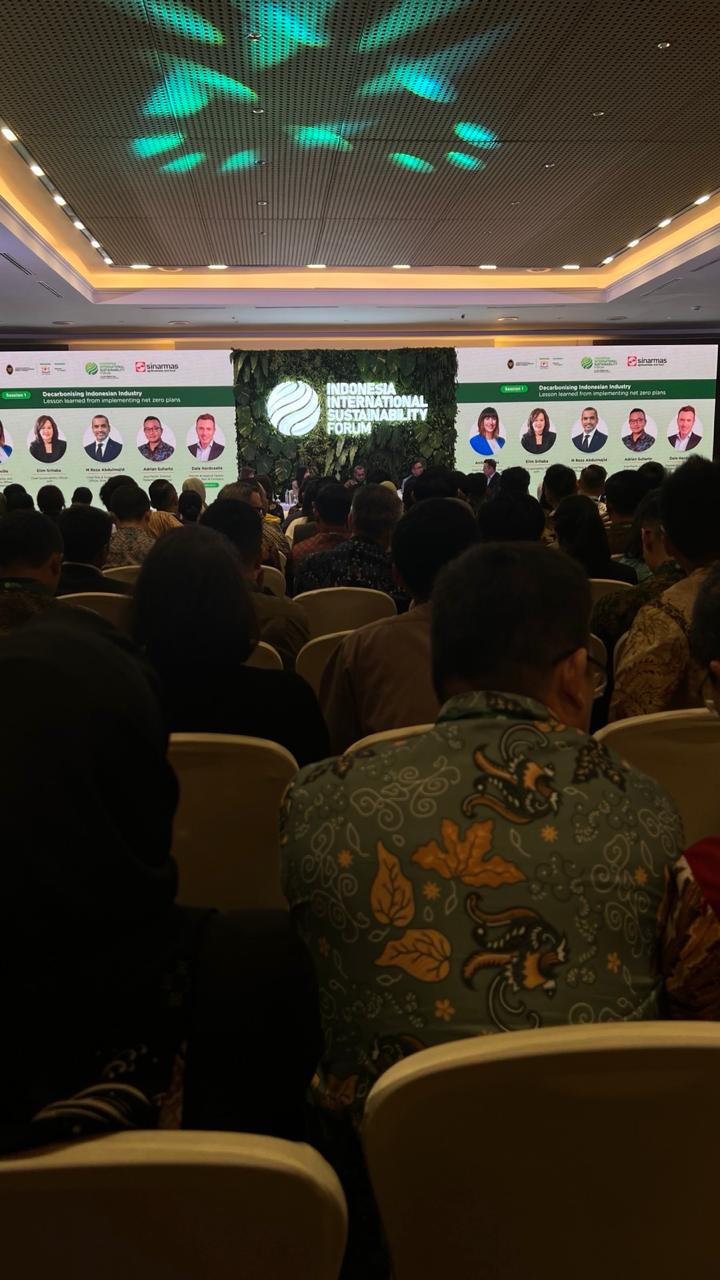As the curtains closed on the Indonesia International Sustainability Forum (ISF) 2024, held on September 5th and 6th at the Jakarta Convention Center, one message resonated clearly: the future of sustainability lies in collaboration and innovation. This year’s event, organized by the Coordinating Ministry for Maritime and Investment (CMMAI) and the Chamber of Commerce and Industry (KADIN), brought together industry leaders, policymakers, and experts from around the world to tackle the pressing challenges of decarbonization and sustainable development.
Decarbonization Focus: Insights from APP’s Elim Sritaba and Industry Experts
One panel that captured significant attention was "Decarbonizing Indonesian Industry," which showcased the commitment of key stakeholders to advancing Indonesia’s sustainability goals. Among the distinguished panelists was Elim Sritaba, Chief Sustainability Officer of APP Group (APP), who joined Anita Neville from Golden Agri Resources, Adrian Suharto from Robertsbridge Group, and Muhammad Reza Abdulmajid from Sinarmas Land in the discussion.
Elim highlighted that APP’s dedication to decarbonization began in 2018 with the launch of its Sustainability Roadmap Vision (SRV) 2030. “This goal cannot be achieved alone. Suppliers, producers, and buyers must join hands and work together if we want to achieve the Net Zero ambition,” she stressed.
APP’s Approach to Green Innovation
Elim then further elaborated on APP’s approach, which is built around three core pillars: greener production, forest protection, and community empowerment. These pillars guide the company’s efforts to reduce energy intensity through investments in clean technology, reuse by-products, and implement stricter preventive maintenance protocols. APP is also exploring electric trucks for transportation needs, though Elim acknowledged the need for improved infrastructure in remote locations. “We are exploring the use of electric trucks, but we understand that successful implementation requires adequate supporting infrastructure,” she added.

During the discussion, Elim underscored the importance of cross-sector collaboration to accelerate the transition to a low-carbon economy. “We believe that this decarbonization challenge requires a collective approach, involving all stakeholders from various sectors. Together, we can create a more sustainable future for Indonesia,” she said.
Technology, Policies, and Tangible Contributions for Sustainable Progress
The panel also touched upon the role of technology, supportive policies, and green investment in achieving sustainability goals. “Through close collaboration and the use of new technologies, we can face these challenges more effectively,” Elim shared. Other panelists echoed similar sentiments, with Adrian from Robertsbridge Group advocating for more accessible regulations for companies committed to restoration, while Anita from Golden Agri Resources called for more attractive incentives to shift away from coal and into alternative fuels, noting that the rules of engagement are still unclear.
Transparency remains a key component of APP’s strategy. “We report all our achievements and progress through a Sustainability Report that is verified by an independent third party to ensure that our claims are accountable,” Elim explained.
Alongside its panel participation, APP showcased its dedication to sustainability with a tangible contribution. The company provided 50,000 Foopak Bio Natura cups for the event, ensuring that every hydration station at the conference featured these eco-friendly, plastic-free options. This initiative not only supported the forum's sustainability objectives but also highlighted APP’s commitment to minimizing plastic waste.
Influencing the path to sustainability
ISF 2024 included 10 plenary sessions, 15 thematic discussions, and numerous high-level dialogues addressing key issues such as energy transition, biodiversity, nature conservation, sustainable living, and the blue economy. Spanning two days, it drew around 7,000 participants—more than three times the previous year's attendance.
The event concluded with the signing of 14 Memoranda of Understanding (MoUs) on critical areas such as cross-border electricity interconnection, carbon capture, and the acceleration of energy transition, as well as green transitions in transportation , setting the stage for future sustainability coalitions and initiatives.